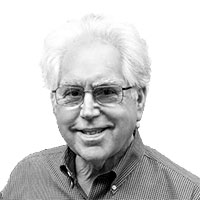ADVERTISEMENT
Tom Shachtman is the author of many books on American and world history, as well as novels, documentary films, and children’s books. These include The Day America Crashed; Edith and Woodrow; The Phony War 1939-1940; Decade of Shocks 1963-1974, and three books on the American Revolutionary era, including The Founding Fortunes: How The Wealthy Paid For And Profited From America's Revolution, due out in January 2020. His newest novel, The Memoir of the Minotaur, will be published in September 2020. He has written documentaries for ABC, CBS, NBC, and PBS, most recently the two-hour Absolute Zero and the Conquest of Cold, for Nova and BBC, based on his book of the same name. He has lectured at the Library of Congress, the Smithsonian, the New York Public Library, Harvard, Stanford, Georgia Tech, and the Newberry Library.
ADVERTISEMENT
